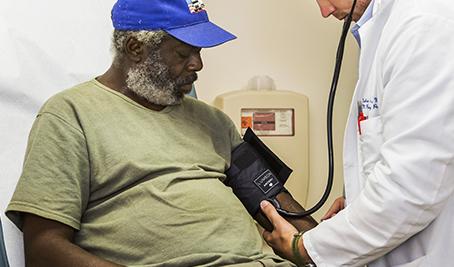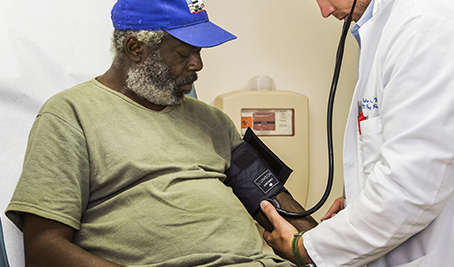New physician assistant program on track


Nearly 800 students applied to join the charter class of the new Florida State University Physician Assistant Program.
“Considering we’ve done no advertising other than a couple of presentations on campus, I think that’s a phenomenal start,” said Jim Zedaker, the program’s founding director.
The program accepted applications July1-Oct. 1 and anticipates admitting a class of 40 students to begin studies in late August. Pending the outcome of the program’s application for accreditation, 50 students will be admitted in the second class (to start in August 2018), followed by 60 for the class that starts in August of 2019.
While the class size will be capped at 60, Zedaker expects the number of applicants each year to continue growing as FSU’s program builds its reputation. Eventually, he anticipates receiving several thousand applications a year.
Students will soon be able to register for a pre-PA undergraduate course open to 50 students for the spring semester. The course is designed to be an exploration of the PA profession. The University of West Florida will accept up to 50 students for a similar undergraduate pre-PA course to begin next semester. Both courses will be taught by an FSU PA program faculty member.
The UWF course is part of a partnership intended to mentor students about the PA profession and to identify students from Northwest Florida who may be a good fit for the FSU PA Program’s mission and the FSU/UWF PA pipeline program. Students admitted through the pipeline program will be assigned to complete their clinical training year in Pensacola.
That part of the partnership includes new office space on the UWF campus, where the College of Medicine’s Pensacola Regional Campus also will be based. The building is scheduled for completion in late 2017. FSU’s first class of PA students will begin formal clinical training in January of 2019 following an initial 15-month period at the main campus in Tallahassee.
Other FSU PA students will be assigned to regional campus communities where the medical school currently sends its M.D. students to complete their third- and fourth-year clinical rotations.
“The community-based medical education program has been very successful both at providing a high-quality clinical education to our M.D. students, and at helping to influence our graduates to eventually practice in these communities,” Fogarty said. “The PA program design is built along the same principles and we expect similar results.”
Noting that the vast majority of its initial applicants are from Florida, Zedaker agrees.
“The idea is to recruit them from here, train them here and keep them here,” he said.
Four new faculty members recently joined the PA program:
• John Bastin – a certified PA with extensive experience in emergency and disaster medicine who most recently was an emergency medicine PA with Maine General Medical Center. He is a retired Navy PA who earned his graduate degree in PA Studies at the University of South Alabama.
• Benjamin Smith – a graduate of the Medical College of Georgia who has been a PA in rheumatology at the McIntosh Clinic in Thomasville, Ga., since 1999.
• Jeffrey Nash – who most recently focused on occupational health in Dayton, Ohio. A retired Navy PA, he recently practiced as a care team leader for the U.S. Department of Veterans Affairs. He is a PA program graduate of the University of Nebraska College of Medicine.
• Michael Johnson – A retired Air Force PA, he recently served as an associate professor and academic director at Nova Southeastern University’s College of Healthcare Sciences. He holds a doctorate in health science from NSU and a master’s in PA studies from the University of Nebraska.

